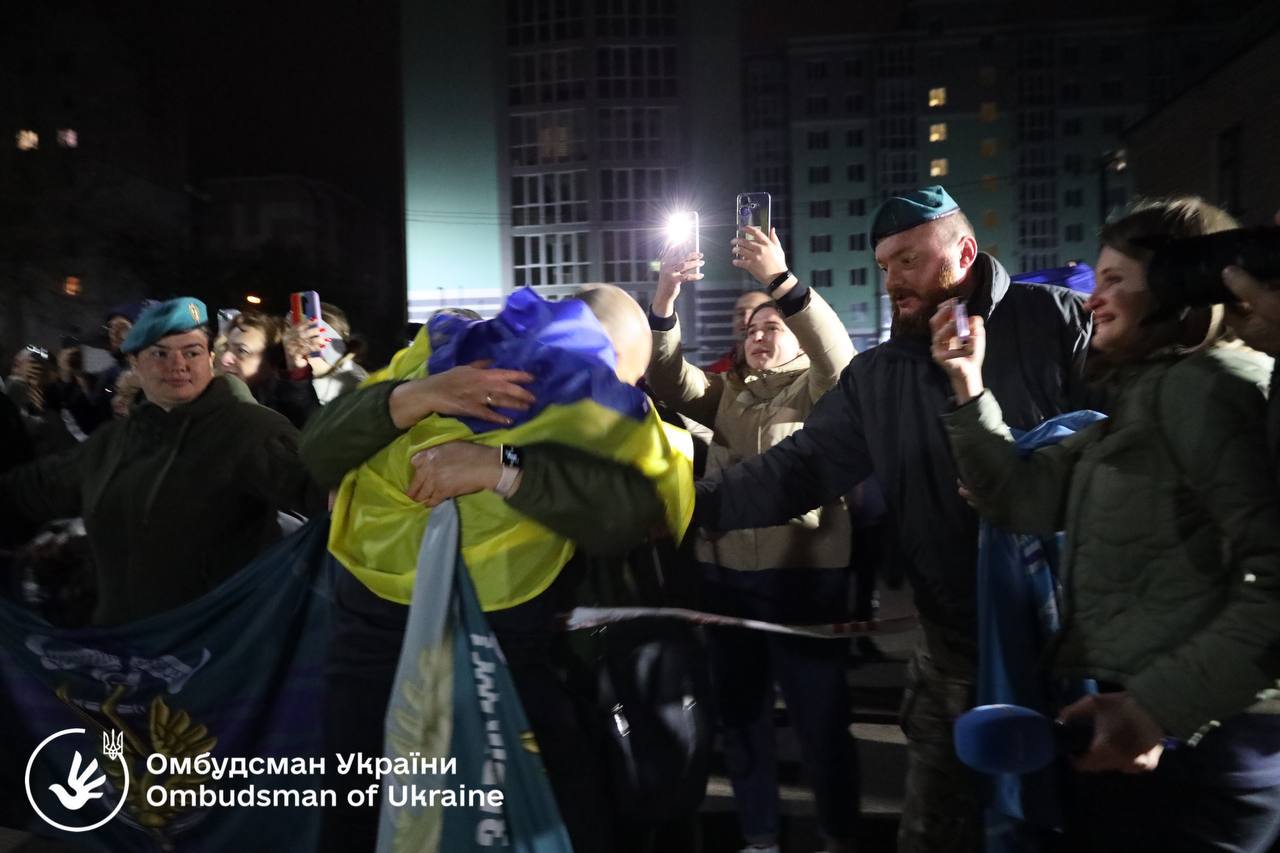Ukraine successfully negotiated the return of 95 of its defenders from Russian captivity on 19 October, 20 of whom were facing life imprisonment in Russia for defending Ukraine.
Ukrainian prisoners of war (POWs) held in Russia often report inhumane treatment and systematic torture, such as beatings, starvation, electric shocks, and sexual violence, aimed at extracting confessions or punishing detainees. Russia disregards international humanitarian norms, leaving prisoners traumatized and in poor health. Conversely, Ukraine treats Russian POWs under international norms.
The Coordination Headquarters for the Treatment of Prisoners of War noted that many of the freed individuals have serious illnesses and consequences of severe injuries, as well as significant weight loss due to torture and malnutrition in Russian captivity.
Among those released were defenders of Mariupol and Azovstal, as well as soldiers from various oblasts including Donetsk, Luhansk, Kharkiv, Kyiv, Chernihiv, and Kherson, according to Dmytro Lubinets, Ukrainian Commissioner for Human Rights.
Notably, 34 fighters from the 12th Brigade of the National Guard Azov returned home, despite Russia’s reluctance to exchange Azov soldiers who it views as “nazis” because they stand as symbols of Ukrainian resistance and independence since 2014.
“These warriors defended Mariupol for 86 days, left the territory of Azovstal by order, and spent two and a half years in Russian captivity. Thanks to the fighters of the Mariupol garrison, Ukraine withstood the first blow in spring 2022,” said Denys Prokopenko, commander of the Azov Brigade.
Prokopenko reminded that approximately 900 Azov fighters still remain in Russian prisons, emphasizing, "Our common task is to return everyone."
The Coordination Headquarters reports that a distinctive feature of this exchange was the return of Ukrainians who had received severe sentences from the Russian judicial system.
Russia sentenced 28 Ukrainians to long terms and 20 to life imprisonment for defending Ukraine.
Among those freed was Maksym Butkevych, a Ukrainian journalist, human rights activist and military serviceman who had been illegally sentenced to 13 years in a penal colony. His release was confirmed by his father in a statement to the ZMINA Human Rights Center.
Butkevych, who enlisted in Ukraine's defense forces in March 2022, was captured by Russian forces near Zolote and Hirske in Luhansk Oblast on 24 June 2022. His capture was confirmed through a video of his interrogation circulated by Russian media.
In March 2023, a Russian-controlled court in the so-called Luhansk People's Republic (LNR) sentenced Butkevych to 13 years in prison, accusing him of war crimes, including allegedly firing a grenade launcher at a residential building in Sievierodonetsk.
Another notable returnee was Vladyslav Andrianov, an Azov brigade fighter who survived the terrorist attack in Olenivka and had been sentenced to 25 years in a penal colony. His girlfriend — Mariupol policewoman Mariana Checheliuk — was released from captivity in May.
The exchange also saw the release of Mykyta Shaulskyi, a National Guard member, whose 12-year-old brother Maksym and grandmother Valentyna died as a result of the Russian strike on Kryvyi Rih on 21 September.
The exchange, the 58th since the beginning of Russia’s full-scale invasion, was facilitated with the mediation of the United Arab Emirates, for which Ukrainian officials expressed gratitude.
In total, 3,767 Ukrainian soldiers were freed from Russian captivity since the full-scale invasion in 2022, according to the Ukrainian Commissioner for Human Rights.
Related:
- “I broke everyone and will do the same to you”: Russian authorities torture Ukrainians with a sense of impunity
- AP: UN investigation finds Olenivka attack planned by Russia
- More than 95% of Ukrainian prisoners of war tortured in Russia – UN Mission
- Toxic fumes and threats: Crimean Tatar political prisoners face torture in Russian detention
- Starvation, beatings, nails ripped out: Russia systematically tortures Ukrainian POWs till death

